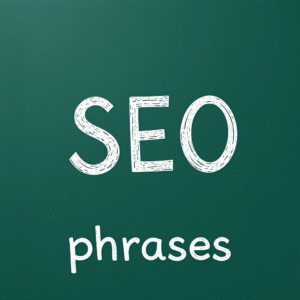In a world where every search can be the start of a purchase decision or a relationship with a brand, being visible is not enough. It is how you are seen and what image you create in the minds of your audience that matters. This is where branding and SEO are no longer two separate paths, but two aligned forces to build your true place in the search space.
SEO may have once been enough to attract traffic, but now Google is not just looking for optimized content, but also for names that users know, trust, and search for. Your brand is what decides whether your link gets clicked or not, even if you rank first.
In this article, we will explore how branding can empower your SEO and vice versa. If you want to know how branding affects SEO, where it gives you points, and when it can hurt you, do not miss this article.
How much does branding impact SEO?
If we go back a few years, for many SEO professionals, branding was not a big deal and was more of a responsibility of other marketing channels. Even today, branding is not immediately the focus of some SEO programs. Until recently, SEO was more focused on attracting non-branded traffic, where SEO has the most effectiveness.
Traditionally, SEO introduced brands and increased brand awareness through activities at the top of the content funnel or user journey. In such processes, the impact of branding on SEO was more of a side effect.
But in recent years, the search landscape has changed fundamentally, and the role of brand has become more of a priority than ever. Google’s algorithms have drastically changed the way they display results. For example, search engine results (SERPs) can now include social websites that talk about brands, both positively and negatively.
On the other hand, consumer behavior has also changed. Today’s users are more intelligent about brands than ever before. In competitive markets, brand loyalty has diminished and people are more willing to explore new brands, especially small businesses.
In this space, SEO can have a huge impact on what is seen in branded searches and, as a result, on the mindset of potential customers towards the brand. Therefore, SEO professionals must take greater responsibility for branded queries and extend brand awareness activities beyond non-branded strategies to fully exploit the new potential of SEO.
How does branding affect SEO?
Every company wants to be recognized by its audience and remain in their minds. But this recognition is not just about knowing the brand name. People must also be able to correctly recognize the brand’s values, personality, field of activity, and products. In addition to awareness, such recognition differentiates and establishes the brand in the audience’s mind. The brand creates a “place” in people’s minds.
Increasing brand awareness is one of the main goals in most marketing programs. Because who does not want to capture the minds and hearts of customers and build a deeper connection with them?
Meanwhile, SEO means optimizing your website and web pages to achieve a better position in search engine results. This means being present in the parts of the Internet that are most visible; with content that both helps users and shows what your brand knows and has to offer.
Some marketing strategies should be designed with the aim of establishing a brand in the minds of a wide segment of the target audience. Among these strategies, SEO is one of the most powerful options; but in many cases, it is overlooked when developing a branding strategy.
While SEO can help strengthen a brand without the need for huge advertising budgets.
On the other hand, brand awareness itself helps SEO. The more a brand is known and remembered, the more likely it is that users will search for it. Search engines place a lot of importance on such brands.
Google’s algorithm always seeks to provide users with reliable results, and brands that are established and well-known usually provide higher quality content.
Brand awareness also increases organic click-through rates (CTR), which is a positive signal for Google’s algorithm. Users naturally trust familiar brands more. For example, 70% of consumers assert that they prefer to click on links from brands they are familiar with when searching for products online.
So, branding and SEO have a two-way relationship. High Google rankings increase brand awareness, and in turn, a strong brand improves search rankings.
What are the benefits of using SEO to increase branding?
Marketers typically use several different strategies to increase brand awareness. But while most of them focus on social media, paid advertising, branded content, and event sponsorships, the impact of branding on SEO and vice versa, using SEO to strengthen the brand, is sometimes overlooked.
At the same time, many of these strategies are too expensive or time-consuming for small businesses. This is where SEO can come into play as a more cost-effective and efficient solution.
Here are some of the benefits of using SEO to increase brand awareness:
-
SEO is an organic strategy
SEO is considered an organic method; this means that you cannot pay Google to display your website in the first ranks of search results. Being visible and receiving clicks in SEO is free.
Of course, this does not mean that SEO is free; it requires time, expertise and the right tools to implement it properly. However, the cost to effectiveness ratio of SEO is much better compared to other digital or offline marketing methods. This is especially important for small businesses; as they are in direct competition with large brands. In SEO, you can focus on longer, less competitive keywords and achieve a good position in Google by focusing on niche markets.
-
SEO Increases Brand Reach
All brands want to be known in the minds of their target audience. SEO has great power in increasing brand reach.
Search engines are widely used. According to Google, this search engine processes more than 2 trillion searches annually. Now imagine your brand ranking high in the results, which means wide reach to the target audience.
More importantly, this visibility happens among people who are really interested in your products or services. Because people are looking for an immediate solution to their needs.
-
SEO establishes a brand’s position as an authority
When a page ranks high on Google’s results, it means that the website is recognized by both users and the search engine. Being in this position means providing the best answer and a good user experience.
As a result, the user who sees these results perceives them as trustworthy. This perception is quite crucial for brand awareness, as it attributes credibility to the brand and strengthens its image in the minds of customers.
-
SEO exposes brand-oriented content
A page that reaches the top has provided valuable and useful content to users. This type of content builds and maintains brand credibility in the market.
This content is not just about the product or the sale; it is about answering questions, solving challenges, and meeting the needs of the target persona. Such content shows how your brand can help people.
Content marketing is one of the main pillars of SEO, and when this content is ranked high on Google, it is more visible.
-
Improves the user experience of the website
To be successful in SEO, it is not enough to just have useful content; your website must also provide a good user experience. This means adhering to user experience (UX) principles such as easy access, ease of use on different devices, and compatibility with different languages and platforms.
As a result, SEO helps improve the user experience on the website. The user experiences a sense of comfort, proper navigation, and confidence. This positive experience not only helps increase conversion rates, but also has a direct impact on branding in SEO, as it makes the audience feel positive about the brand.
How can branding and SEO work together successfully?
The impact of branding on SEO does not happen by accident, but requires careful and targeted planning. Successful collaboration between branding and SEO is possible in two main ways:
The first way is to use SEO to increase brand awareness. This path includes measures such as optimizing Top of Funnel content, continuous presence along the user journey, creating high-quality backlinks, developing a digital PR strategy, and the like. All of these measures help your brand to remain in the minds of the audience and, as a result, strengthen branding in SEO.
The second way is to use SEO to increase brand credibility. Parts of your brand can affect the E-E-A-T factor. For this reason, the brand you build plays a fundamental role in proving credibility and trust. If your brand has a clear tone, vision, and voice, Google will gradually identify the values and level of trustworthiness of your brand. Other websites are also more likely to link to your content. This is where consistency of messaging on your website becomes important. Things like setting a tone, clarity of message, providing credentials, and having a clear point of view will all benefit your SEO and branding.
But the best strategy is to combine the two mentioned approaches. Brand awareness and brand credibility are both equally important. They can be considered two sides of the same coin. nevertheless, for branding strategies to work in SEO, you need to have a solid understanding of your target audience.
How to create an SEO strategy focused on increasing branding?
A well-designed SEO strategy can significantly increase your brand awareness. So, the most important advice is to stick to standard and professional SEO principles.
When you produce relevant and valuable content, you not only engage your audience, but you also convey the message that your brand is a trusted authority. Here are some tips for creating an SEO strategy focused on the impact of branding on SEO, which not only impacts rankings, but also traffic, conversion rates, and lead generation:
-
Create valuable content that matches your brand persona
One of the basic but vital principles of SEO is to create content that matches the needs, concerns, and language of your target audience. If you want to increase brand awareness with SEO, you need to create content that truly adds value to your audience.
To do this, first understand your brand persona, examine their characteristics, needs, goals, and language style to write targeted and effective content. This will make your audience feel like your brand is on their side and is looking to solve their problems.
One of the best ways to do this is to create unique content; something that only you have: your brand experience. Use real experiences, customer stories, practical examples, and even your own brand’s mistakes and successes to make the content more human and believable.
If you find it difficult to produce quality content in-house, platforms like WriterAccess can be a good solution for outsourcing content production to professional freelancers.
-
Provide the best user experience
A good user experience on your website not only helps improve your Google ranking, but also directly impacts the impact of branding on SEO.
A brand that makes it easy for users to reach their goals on your website will gain the trust of your audience. Things like fast loading speed, responsiveness, website security, and proper functioning of links and buttons all contribute to this experience.
-
Show your brand personality on your website
Every moment a user is browsing your website, they should be able to feel your brand personality. This personality is conveyed through design, colors, images, text tone, and even the arrangement of elements.
Align your website’s visual identity with your brand’s values and tone. If your brand has a friendly tone, your content should convey the same feeling. These details will gradually create a lasting image of your brand in the user’s mind.
-
Link building with brands of equal value
Link building is not just a way to get backlinks. This strategy can be an effective way to get your brand seen by new audiences.
But it is important to be careful when choosing your partners. Go for reputable websites that align with your brand’s values. Your credibility is tied to the partner brand. Partnering with brands that share similar values and audiences will strengthen your branding and prevent damage to your reputation.
-
Optimize for no-click searches
About 40% of Google searches do not result in a click. Why? Because of featured snippets, or prominent answers that display information directly on the results page.
At first glance, this may seem like a negative for SEO; you are not getting clicks. But in terms of brand awareness, it is a positive thing. If your answer is displayed as a snippet, your brand will be ingrained in the minds of the audience. Additionally, local intent searches also help with branding because your business information, such as services and customer reviews, is displayed without the need to log in to the website.
Does Google give brands a higher priority in search results?
The short answer is: Google does not directly give brands a priority, but branding has benefits that greatly influence Google’s algorithmic performance. This distinction is crucial because it shows that brands rank better not because of their name, but because of their user behavior and online presence.
In practice, brands that are directly searched for, have higher click-through rates, are more visible on social media, and are referenced on various websites tend to rank better in search results. These signals help Google understand which websites are most relevant and trusted by users.
On the other hand, user experience also plays a significant role in brand engagement. Brands that offer a good user experience, publish high-quality content, and have genuine engagement with their audience naturally stand out in Google’s results.
Consequently, while branding alone is not a priority factor, strong and credible branding can indirectly increase your chances of ranking better on Google. Google looks for websites that users are interested in, and branding is one of the strongest indicators of that interest.
Does rebranding damage SEO?
A common question in conversations about the impact of branding on SEO is whether rebranding can hurt SEO or not.
Rebranding usually involves some kind of migration (such as changing the domain, website structure, or even the brand language), and as a result, much of the risk is related to technical SEO. But there is a more significant risk in the SEO branding dimension: the connection you have built with your existing customers could be lost and you will have to rebuild it all over again.
Whether this is a threat or an opportunity, however, depends on your purpose for rebranding. In some cases, a fresh start is exactly what your brand needs. So, like many questions in SEO, the answer to this question is: “It depends.”
Conclusion
In the race for receiving rank on Google, having an optimized website is only half the battle. The other half is having a credible, enduring, and trustworthy brand. The impact of branding on SEO is not a marketing theory, but a measurable reality in user behavior and search engine response.
Brands that have a clear image of themselves, offer a distinct experience, and build a deep connection with their audience also take greater strides in SEO. This means it is time to see SEO not just as a technical tool, but as part of your brand identity strategy.
If you are looking for sustainable growth, real clicks, and minds that remember your brand, combining SEO and branding is a path you should take seriously.





